Emergency Preparedness: Have a Plan To Protect Your Finances
This post may have affiliate links. Please read the Disclosure Policy for complete details.
Emergency preparedness is no joking matter.
I know a lot of people make light of it with their memes of “hurricane warnings”.
Or Floridians with their “hurricane parties”.
And the tales of older New Yorkers:
Snow days!? When I was your age I had to walk 10 miles to school in the snow uphill…both ways!
But the one constant is the absolute havoc natural disasters wreak on people’s lives.
It doesn’t matter if it’s:
- Atlantic hurricanes
- Pacific/Gulf hurricanes
- Wildfires
- Landslides
- Nor’easters/snowstorms
- Downpours in the midwest
- Earthquakes
Noplace in the United States is immune to Mother Nature’s wrath (or the stupidity of other “humans”).
So how can you ensure that you are truly prepared–from both money management and non-financial standpoints–for potential emergency situations?
Learn How The Storm Models Work
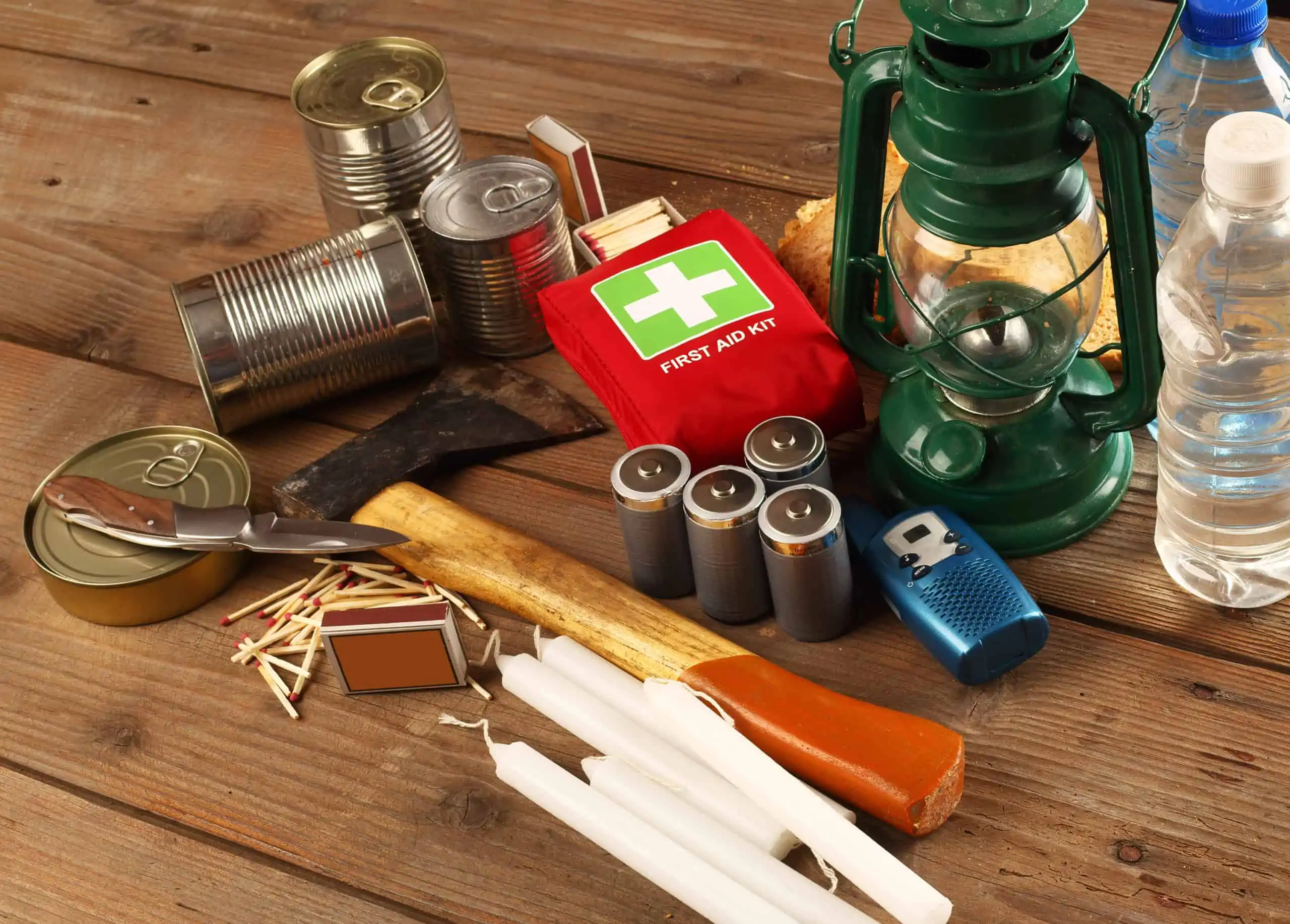
**This is mostly a hurricane-specific issue**
One of the things that annoy me the most about hurricane season is the utter lack of understanding.
People just don’t know what the hell they are talking about most of the time.
They spout off stuff they heard on the news but twist it.
Or they just talk complete garbage because they want others to think they’re smart–you know like that person who says they’re an expert in every financial topic to be cool.
Take this track of Hurricane Dorian from the 2019 hurricane season for example:
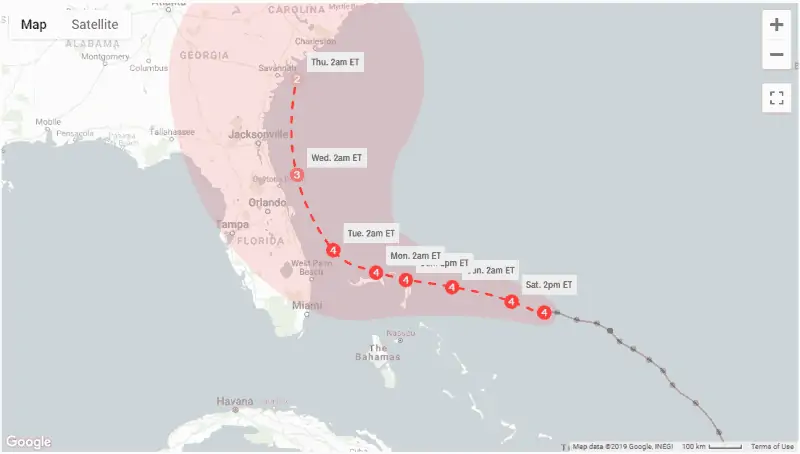
Notice the red bubble around the storm path.
That’s called the “cone of uncertainty”.
It represents the most likely areas in which the center of the storm (the dots/dashes) will go.
Many people incorrectly talk about that cone as being where the damage will be isolated, which couldn’t be further from the truth!
Being outside of that area does not mean you are in the clear and too many people make that mistake.
The important thing to know is how far out from the center of the hurricane the wind and rain reach as that will be a more accurate depiction of the dangerous areas.
So, for the person who lives in Miami, which is outside of the bubble, the wrong interpretation would be to think you’re safe from any danger.
The reality is that the storm can wiggle anywhere in that bubble and if it’s big enough and moves close enough to the city of Miami, a significant amount of damage can occur.
Start Your Emergency Preparedness Plan Before You Need It
Don’t ever take hurricane season or any other season like wildfire season lightly.
Anyone living in Florida for more than a year is guaranteed to have been through a hurricane season.
Odds are they have even experienced an actual hurricane (or 4) of varying strengths.
The same goes for anyone living in California with earthquakes/wildfires.
Or the Northeastern states with snowstorms.
So why is it that each and every time a hurricane comes close people scramble for everything necessary to outlast it?
I understand the desire to not spend money.
I understand the desire to not have tons of “stuff” occupy your home.
But there’s a difference between buying supplies that can save your home and potentially your life and spending money on junk you don’t need or will never use.
There’s a difference between storing said supplies and collecting “things” that do nothing but create clutter and collect dust.
It doesn’t matter if there are times when the meteorologists are wrong, or the models don’t get the path correct.
Mother Nature has a mind of her own, and almost never can the storm paths be predicted accurately until it’s too late.
Have An Emergency Preparedness Checklist
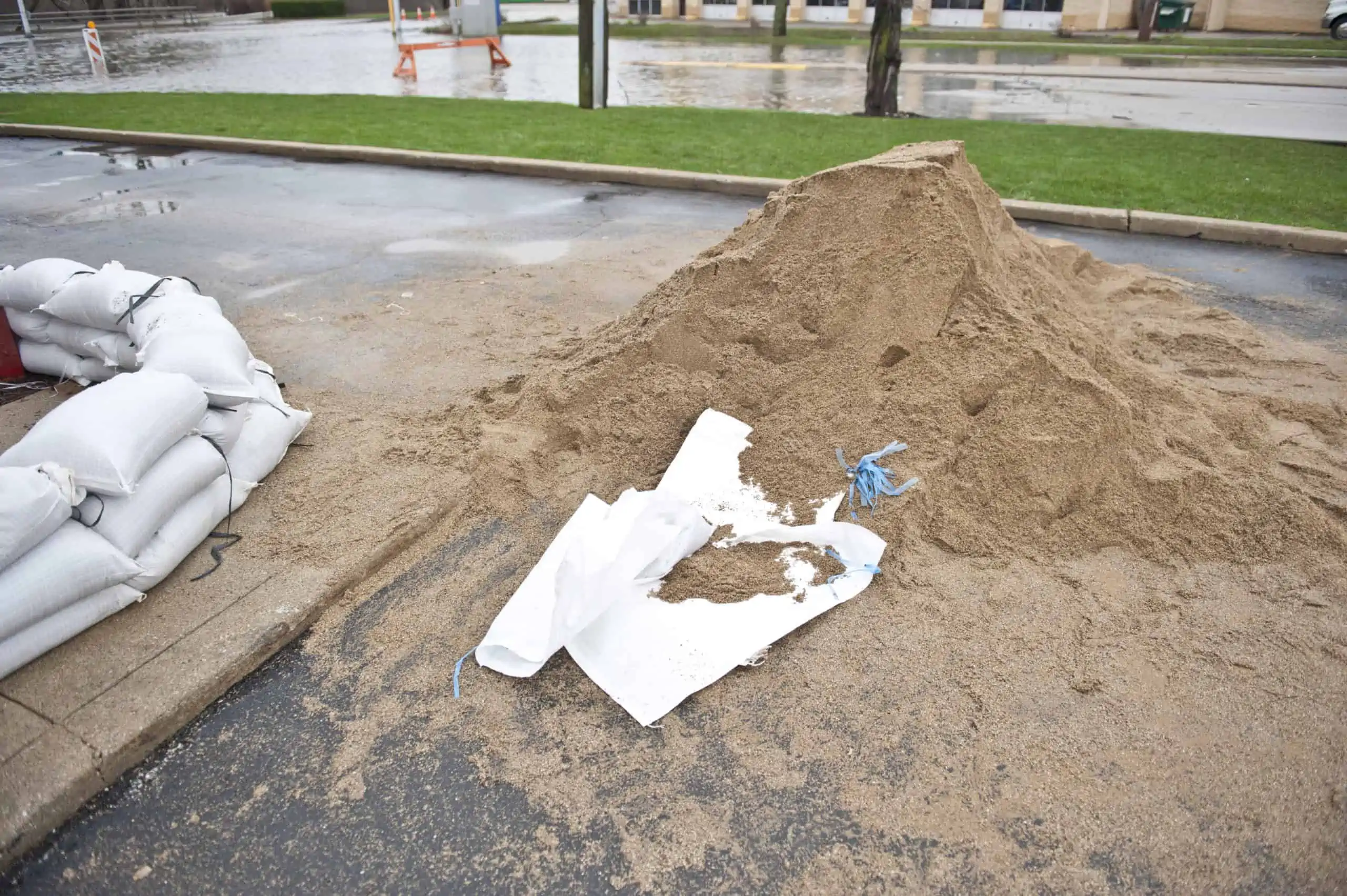
This is one of the oddest things to me.
Everywhere you turn during hurricane season you will come across reminders and warnings:
- Radio station
- Cable television
- Newspapers
- Supermarkets
- Government offices
It’s practically impossible to not know when hurricane season is or what supplies you will need.
Heck, Publix, the state’s largest regional supermarket even produces a preparation guide that contains highly detailed checklists for all kinds of needs.
Even if you don’t look at these resources, most of the supplies you’ll need are common sense:
- Water
- Canned food/non-perishables
- Plywood
- Batteries
- Flashlights
- USB battery chargers
- Gas
- Meds/first aid
- Sandbags
- Masking tape
This is by no means meant to be a complete list–you can get those at the Publix website which are much more detailed!
Basically, you just need to use common sense:
What supplies do you need to ensure your home is protected from flooding or flying objects?
What supplies do you need to make it through a few days or more if there is no power?
What do you need to ensure that you don’t starve without power or the ability to call a restaurant or grocery delivery service?
That should be the minimum you stock up on!
One thing to be aware of is that not all grocery stores are good for stocking up–Aldi stores for example are notoriously hit-or-miss for the selection of non-food items while Publix carries practically everything.
Keep Multiple Copies Of Important Documents
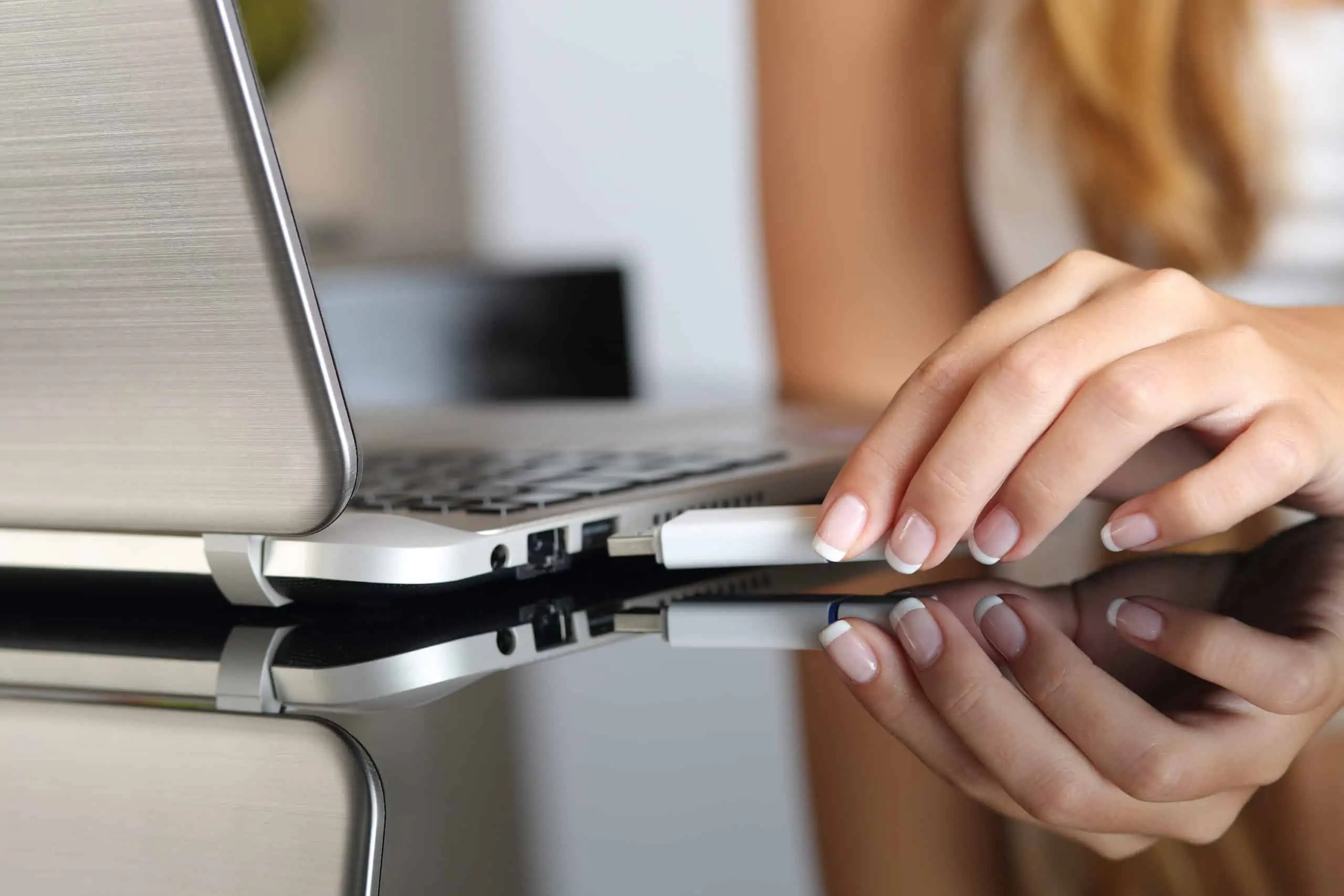
Everyone should know the importance of keeping track of all your important paperwork:
- Insurance policies (homeowners/renters and auto insurance agencies)
- Wills
- Bank accounts
- Brokerage accounts
- Car titles
- Mortgage documents
- Income tax returns
Pretty much anything you might need to file claims after a natural disaster, deal with a fatality, or any kind of financial matter afterward.
In case you don’t know, allow me to explain it in a very concise manner:
IT’S VERY IMPORTANT TO KNOW WHERE ALL OF YOUR IMPORTANT DOCUMENTS ARE IN CASE OF EMERGENCY!!!
That said, where should you keep all of these documents?
In your home?
In a bank vault?
Buried someplace hidden?
Actually, all three are pretty decent options and the secret is that you should never have just one location for your important information.
Having a copy at home is fine during calm times, but if your house is damaged or destroyed, your records will probably be lost.
Even worse, if you evacuate and leave your home unattended, someone can break in and those important documents can be easily used for identity theft.
Using a bank vault is a fine option as well unless the storm knocks down trees and power lines making travel difficult or temporarily impossible.
Burying them was mostly a joke.
But the one place you should also store a copy is in the cloud.
That way, if you’re forced to evacuate or leave on your own (“just in case”) you know you will be able to access anything you need at any given time.
You won’t have to worry about running around to compile all of the hard copies since it’s already waiting for you in your preferred cloud storage system.
If you don’t already have one, get one! It really doesn’t matter where you go as long as you do it.
Having redundancies in place will safeguard against losing everything because you only have one set of these important documents.
Stash Your Cash

I’m not a fan of cash.
But even I recognize that it’s very useful in case of a disaster.
One of the biggest concerns in the aftermath of a natural disaster or major storm is the fallout such as power outages.
No matter how much you–or I for that matter–love our credit cards and shun cash, there’s one indisputable fact:
Without power or internet service, you will need cash to make purchases.
It’s important to remember that if the roads are bad enough to keep gas stations dry and grocery store shelves bare, you can be sure that the banks won’t be able to get cash deliveries either!
That’s why it’s important to have something other than a credit or a HELOC alone reserved for emergencies.
So make sure you get to the bank and take out enough cash to last at least a week, maybe even more.
Just like any other supply, it’s better to get it out “just in case” since you can always put it back if you don’t need it.
If a “cash stash” is already part of your emergency fund then you’re already one step ahead!
Emergency Preparedness Requires An HD TV Antenna
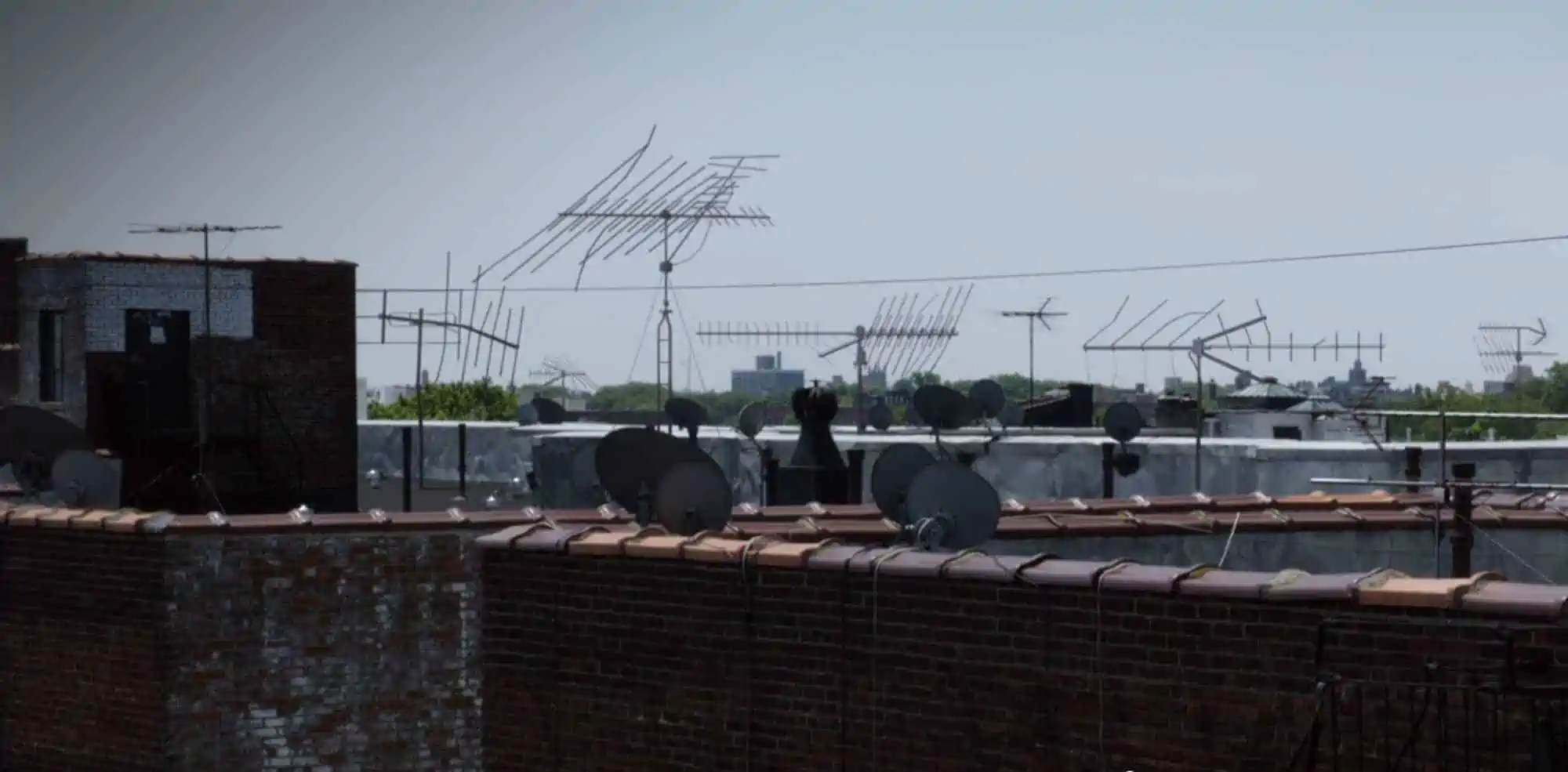
Weather events usually bring lots of rain/snow and wind.
Especially here in South Florida, cable and internet services are very unstable, even in the slightest bad weather.
So, go out and get yourself an HD TV Antenna.
Why?
- The power is the first thing that gets attention, not your cable lines.
- Cable television tends to go out more easily than power
- TVs can still work on a generator or battery backup
- There are still over-the-air broadcast signals available for free.
In most instances, you will at least get free local channels.
So, not only would you need some entertainment, but more importantly some information.
You know, information like what is going on, what you should (or shouldn’t) be doing, when things are expected to be done, etc.
Bet you’re thinking “Hmmm that’s actually not such a crazy idea to add to my emergency preparedness list” now, aren’t you?
And, it’ll also help you in those times when the cable goes out for no apparent reason at all on the clearest of days.
You Should Always Have A UPS
A staple of my home office has always been an Uninterruptible Power Supply (UPS).
I even have one set up on my parents’ home entertainment system at their home.
Why?
Sometimes, and this doesn’t only apply to natural disasters, the power goes out.
Not everything just the power.
If you have your equipment hooked up to a UPS, you can at least finish your show or movie while the power is out.
If you are doing work and have your computer and modem/router attached, you should have time to wrap up what you were doing so you don’t lose the work.
I’m sure you’ve all experienced the frustration of having a brownout or worse, a complete blackout in the middle of an important task or part of a show/movie.
With a UPS, you at least stand a chance at reaching a wrapping-up point and save yourself some frustration.
Emergency Preparedness Is NEVER A Waste
So many times I’ve heard people say something to the effect of:
I wasted all that time putting shutters up and nothing happened!
People when a storm doesn’t hit the way it was warned to
It’s laughable, really.
So what if you spent an hour or two doing manual labor?
Who cares if you spent extra money buying materials that you didn’t end up needing?
You can always leave the storm shutters or boards up for a little while to make the time and money “worth it”–although you have to check with your city ordinances since some require they be taken down at a certain point.
Hell, who gives a crap if you evacuated (at the direction of government officials or on your own) when you didn’t end up needing to?
Ensuring that your family and home are safe is never a waste of time!
What would you be saying if the circumstances were reversed?
People just need to learn to have perspective in these situations.
Wrapping Up
Trust me, I know how off-putting natural disasters can be, especially during hurricane season which makes life crazy for days at a time before it even hits.
There’s a reason NOAA does regularly updated projections.
Why do the TV networks break into regular programs with news & weather alerts?
And, there’s a reason the governments close schools and public offices.
That reason is that emergency preparedness is no joke.
You can almost always replace physical possessions, but you can never replace a life lost due to careless or negligent preparation!
Your Turn
Do you live in an area that gets impacted by hurricane season? Do you regularly keep supplies on hand in anticipation? Or, are you the type that says “Fuck it” and waits in line at the store for the emergency stock to come in?

